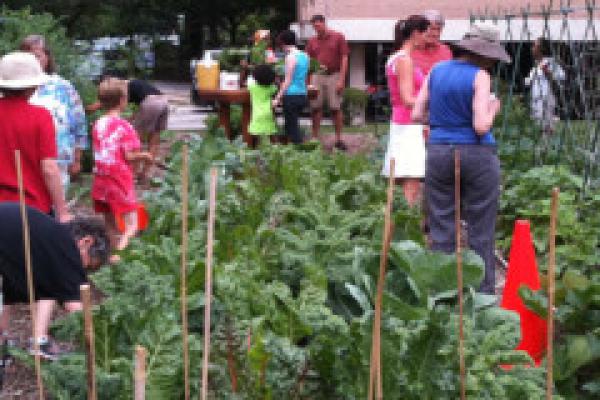The Rev. Morris G. Henderson wasn’t sure what do with a vacant city block of land behind his 31st Street Baptist Church in Richmond, Va. The church had purchased the plots, but didn’t have the funding to build a planned family life center.
Then, he had a vision.
“Why not build a garden and people can learn to be self-sufficient and we can grow food?” Henderson said.
With an 80-year-old congregant heading the project, the congregation planted its first garden in 2008: watermelons, tomatoes, okra, squash, strawberries, and blueberries.
By the second year, even after the gardening chief had passed away, congregants were getting guidance from the Virginia Cooperative Extension; this year, the church has at least two dozen raised beds, with the bulk of the harvest used for the church’s Monday-Friday soup kitchen.
Read the Full Article

